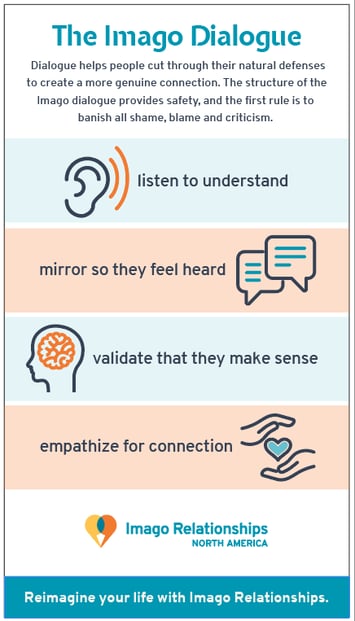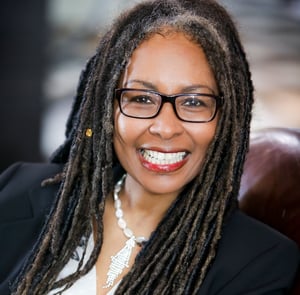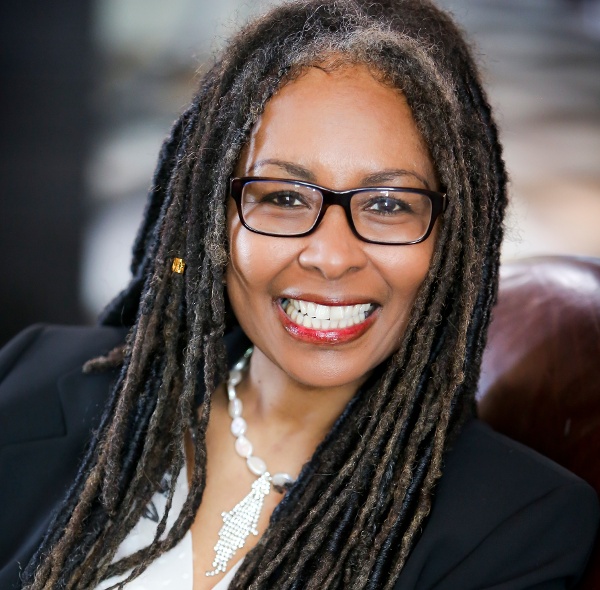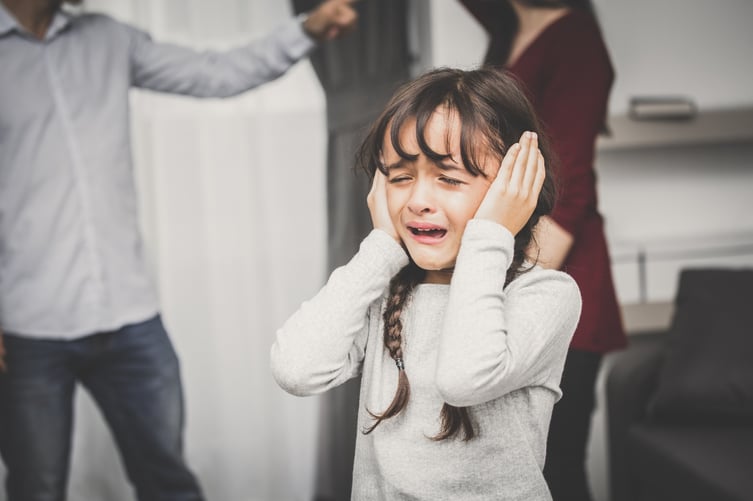“He hit me!” Daria announced in a harsh tone when she and Ricardo came in for their first couple’s session. “You provoked me until I did. You wanted me to hit you!” Ricardo rebutted.
“No, I didn’t! You always blame me for everything. Why can’t you just take responsibility and say you’re abusive? You’re just like your step-dad, and you know he was and still is an abuser.” Daria rebutted.
"You’re impossible! You’re never satisfied with anything I do. Who do you think you are, my judge and jury? Get a life! Get off my F@*king back! Besides, you provoke me into hitting you. You hit me sometimes too. Don’t pretend you’re the innocent one in all this!” Ricardo rebutted.
"Whoa, whoa, hold up … whoa guys … time out! I said to interrupt their rapidly escalating battle.
“It makes sense that both of you are scared and upset. You’re intruding on each other’s boundaries and trying to protect yourselves at the same time. Let’s slow things down a bit and try to find out what’s underneath the emotional and physical abuse." I further explained.
First Order of Business - Stop the Hitting!
They simply could not allow it to continue. I also recommended they attend a marriage intensive and weekend workshop, which would specifically give them insight, help them gain some compassion for each other, and an understanding of early childhood wounding. The combination of the workshop experience and the marriage intensive therapy is strong medicine and a healing balm.
Because Daria and Ricardo didn’t bond securely with their first caretakers, their parents, they had many difficulties trusting and being close to other people later in life. Intimate relationships were incredibly hard for them. When they felt unsafe, especially rejected or abandoned, they tended to get violent and abusive to control their partner and avoid feeling hurt.
They told me that they did not want to divorce or separate, so I advised them that they would have to faithfully practice everything they learned with me and in the workshop. I also told them that I would introduce them to a safe way of communicating called Intentional Dialogue, which would help them calmly and honestly talk with each other without becoming abusively reactive.
Developing and practicing the self-discipline that Intentional Dialogue teaches seems the best way to make sure they dealt with these conflicts while they were fresh and before they festered. Otherwise, tensions would gradually build-up. Before they knew it, one or both of them would feel so scared and anxious they would be in danger of having the situation escalate into violent behavior.

I also said they might not like making the effort that Intentional Dialogue requires, and it would not be easy for them to really listen to each other and restrain from reacting until it was their turn to speak. But I also didn’t think they would like the alternative either. Although Dialogue can be difficult, it is a lot easier and less expensive than separating and getting a divorce.
Daria and Ricardo seem relieved that I didn’t get caught up in their fears or pass judgment on them. Like many couples who surrender and come to the realization that they need help, they simply didn’t know how to stop their hurtful patterns of relating. They used the relational style of hiding their genuine feelings by attacking each other. Rather than calming themselves when they felt unsafe … because of strong feelings like anger, sadness, success, closeness, or excitement, they covered up their fears by acting tough and invincible.
In this “macho” stance, they invaded each other’s boundaries with escalating rounds of critical rejecting words and provocative behavior, both putting up a protective facade to defend themselves as they battled one another.
Ricardo and Daria invaded each other’s boundaries with hurtful verbal assaults. The boundary violating relational styles they used were as follows:
-
Defining the other as impossible, even crazy, as they competed for superior distinction.
-
Pleaded with the other to change so that their relationship would work properly.
-
Neither of them took responsibility for their part in the difficulties.
However, they did stick with couple’s therapy and enrolled in a workshop.
It is obvious how Daria and Ricardo violated each other’s boundaries. Physical boundary intrusions are easy to identify, but it is more difficult to identify the ways Daria and Ricardo violated each other’s emotional boundaries. Click here to see how we commit boundary violations.
Awareness and courage are necessary to transform boundary intrusions. Doing so requires consciously stepping out of our macho and protective facades and owning what we truly think, feel, want, and need. Sometimes calling on our spiritual resources is necessary to gain the self-confidence and support to do the work we need to open our hearts again. Whatever our spiritual practices are, having a sense of connection with a Reality that is greater than our immediate circumstances can provide us with support and inner strength when things are difficult with our partner.

If you and your partner struggle with conflict and even violence in your home and want to help create peace and healing, we are here to guide you along the journey. We have both in-person therapy and online therapy for individuals, families, and couples. If you are in an unsafe environment and cannot get help, please seek immediate assistance by contacting the domestic violence hotline: https://ncadv.org/get-help.
Discover more about Imago with our Imago Professional Membership, Imago Professional Facilitators, Imago Professional Training and Imago Educational Webinars.
Connect. Transform. Thrive.
 This blog was written by Paula Smith, Ph.D. , Certified Advanced Imago Clinician, and Workshop Presenter.
This blog was written by Paula Smith, Ph.D. , Certified Advanced Imago Clinician, and Workshop Presenter.
Dr. Paula is passionate about helping ALL couples create safe, healing, egalitarian, connected partnerships in deeply perceptive, precise, and appropriately playful ways.
For 16 years, Dr. Paula has worked exclusively with couples. Over the past 8 years, she has developed a specialization in 2 and 3 Day Private Intensives for couples in crisis, engaged couples, and couples struggling in the aftermath of an affair. The Couple Private Intensives are process-driven, exclusive, profound, and life-changing because they allow couples to explore relational issues and dynamics that cannot be understood in shorter sessions. She dives deep with partners over a span of days for deep exploration, understanding, connecting, and fun. Dr. Paula opens couples’ eyes to previously unseen and unfolding possibilities in their relationship.
Having experienced the miracle of healing and recovery herself, Dr. Paula's life’s work is rooted in a deep belief in the transforming power of relationships. She's been active in 12-step spiritual communities for 36 years. She teaches Introduction to Couples Therapy at Antioch University New England and has also taught courses on topics related to Race, Racism, Whiteness at Harvard Divinity School, Harvard Medical School, Rhode Island College, and Imago Relationships North America (IRNA).
Paula is a member of the RI Association of Marriage and Family Therapy, American Association of Marriage and Family Therapists, Association of Pastoral Counselors, Imago Relationship International, Antioch Alumni Association, and Harvard Alumni Association, and a co-author of the article “Marriage & Family Therapy Training Programs and Their Integration of Lesbian, Gay, and Bisexual Identities,” published in the Journal of Feminist Family Therapy and “Post Katrina Theology," published in Harvard Divinity Magazine.




